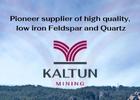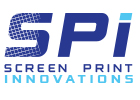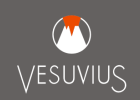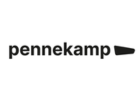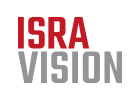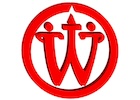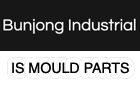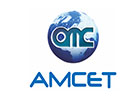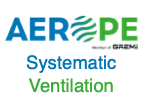As attention in Brussels turns to the proposed revision of EU Packaging and Packaging Waste (PPWR) rules, a Belgian glass factory illustrates how any move to limit innovative packaging offerings designed and produced in Europe risks having unintended consequences on local businesses.
This week, Frédérique Ries, MEP for Belgium’s French-speaking community and leading lawmaker on the PPWR proposals, visited Saverglass’ container glass factory in Ghlin, Wallonia to discover the latest innovations in glassmaking, and the contribution of glass producers in bringing unique, fully circular designs to customers in Belgium and beyond. This comes as EU policymakers get set to debate the European Commission’s proposed PPWR revision, where proposals to limit creative design possibilities will force standardisation on the market, posing risks to the business of both European container glass factories and their customers.
As rapporteur of the Committee on Environment, Public Health and Food Safety (ENVI) – the committee leading the PPWR through the European Parliament – the visit offered MEP Ries a first-hand view of the container glass industry’s role in driving a circular local economy through their offer of designs that deliver on sustainability, quality, and branding needs as well as closed loop recycling.
Ries’ tour came in combination with a further visit to glass packaging waste recycling facility, Minérale S.A., which provided her with insight into how glass reduces waste in the real circular economy. Today, a record 80% of all glass put on the market in the EU is collected for recycling and used in new production loops. Belgium is particularly successful in this regard. Thanks to its highly efficient and consumer-centric recycling scheme – overseen by Producer Responsibility Organisation, Fost Plus – the country achieved a glass collection for recycling rate of 114% in 2021, according to Fost Plus’ latest data.
A Belgian success story that delivers innovative designs for the market
Saverglass’s Ghlin facility is today hailed as a premium container glass success story. One of Belgium’s oldest glass makers, initially producing regular glass bottles in 1962, the factory now specialises in premium bottles and precision decoration designed for high-end wine and spirits products, resulting in more value creation for the factory and local economy. The plant today exports to other European countries, and employs 342 people in the Hainaut province – the region of the country with the lowest employment rate (61.4%), according to the Belgian statistics office’s 2022 data.
The European container glass industry supports the PPWR’s ambition to reduce waste and create a truly circular economy, but has previously raised concerns that certain elements within the proposal – such as packaging minimisation criteria that does not allow for product design in the weight of a container, or allow brands to market their products through distinct packaging designs if they add weight – are likely to threaten the successful business model of factories like Saverglass’ Ghlin facility.
Commenting on the impact the proposed regulation risks having on Saverglass’ operations, Saverglass President Jean Marc Arrambourg adds:
“The focus on weight reduction rather than waste reduction is problematic. As a company, we deliver value for both our customers and local communities by producing creative, high-precision glass containers that are fully recyclable. Packaging does more than just contain and protect products; it also helps shape a brand’s identity and often evokes cultural heritage and identity. By threatening a wave of packaging design standardisation, the proposed Packaging and Packaging Waste Regulation puts our current business model and, by extension, places the value we deliver to the real economy at risk.”
Adeline Farrelly, Secretary General of FEVE, commented on the revised PPWR’s potential impact on European industry more widely:
“Some of the proposed measures in the revised Packaging and Packaging Waste Regulation would have strong negative repercussions by limiting the availability of packaging and by extension the consumer goods they are packed in. This risks damaging the reputation, competitiveness and profitability of European industry and would significantly harm the glass industry. Despite increasing challenges in recent crisis times, our factories have remained resilient in face of exceptionally high market demand, providing a health-conscious and circular packaging that ensures continued supply of essential products to consumers”.
Investing in circularity while meeting customer needs
The container glass industry pairs its promise of responsible production with a commitment to offer customers distinctive packaging designs that are fully circular and climate neutral by 2050. Innovations in design and production are setting a new standard for glass packaging that delivers on sustainability, quality and brand identity, while lowering the industry’s production footprint and increasing recycling and collection rates in further support of circularity goals. Today, “light weighting” or “right weighting” – reducing how much glass is needed to make glass bottles, jars and flacons while maintaining performance criteria on strength, quality and design – is already a market reality. Glass packaging today is 30% lighter than 20 years ago.
In January 2023, based on the latest available figures, the container glass industry recorded its highest ever production levels, producing 42.3 billion glass containers for critical European sectors in the first half of 2022. The industry met this record-high customer demand despite challenges such as the continued impact of the COVID-19 pandemic and extreme energy prices.
As it stands, Europe’s container glass manufacturers support a total of 125,000 direct and indirect jobs. The annual exports of products packed in glass containers account for €250 billion, giving a strong boost to Europe’s balance of trade. However, despite this wide-reaching impact, the container glass industry is still highly localised, with factories and other sites embedded in local communities that use local raw materials, together with as much recycled content as is available, in the creation of reusable and endlessly recyclable glass packaging.





